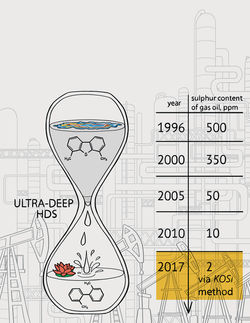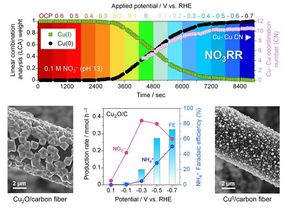A touch of potassium yields better hydrogen-storage materials
Advertisement
An international research team, including Professor Rajeev Ahuja's research group at Uppsala University, has shown that small additions of potassium drastically improve the hydrogen-storage properties of certain types of hydrogen compounds. The findings are published in the Web edition of Angewandte Chemie International Edition.
"Our energy-consuming world has become more and more dependent on new methods of storing and converting energy for new, environmentally friendly means of transportation. Hydrogen, which can be produced with few or no harmful emissions, has been suggested as a long-term solution to future energy needs," says Rajeev Ahuja, a professor at Uppsala University, who adds:
"The interest in research geared to developing a technology for safe and efficient storage of hydrogen has increased considerably."
His research team is now demonstrating, in collaboration with Professor Ping Chen's research group at the National University of Singapore, that small additions of potassium hydride dramatically improve the hydrogen-storage properties of a mixture of Mg(NH2)2 and 2LiH.
The new findings are based on both experimental and theoretical data. The extensive calculations in the study were performed with UPPMAX (Uppsala University Multidisciplinary Center for Advanced Computational Science).
"The results clearly show that small additions of potassium hydride dramatically lower the temperature for hydrogen absorption. Based on our theoretical analysis, we can provide a detailed explanation of the atomic mechanisms behind the effect," says Rajeev Ahuja, who adds that this is also of interest for other hydrogen storage systems.
For example, automakers are interested in using solid hydrogen-storage materials as a new type of energy storage in cars. However, the functional properties of these materials require a mixture of different hydrides and the use of catalytic converters.
Topics
Organizations
Other news from the department science

Get the chemical industry in your inbox
By submitting this form you agree that LUMITOS AG will send you the newsletter(s) selected above by email. Your data will not be passed on to third parties. Your data will be stored and processed in accordance with our data protection regulations. LUMITOS may contact you by email for the purpose of advertising or market and opinion surveys. You can revoke your consent at any time without giving reasons to LUMITOS AG, Ernst-Augustin-Str. 2, 12489 Berlin, Germany or by e-mail at revoke@lumitos.com with effect for the future. In addition, each email contains a link to unsubscribe from the corresponding newsletter.



























































